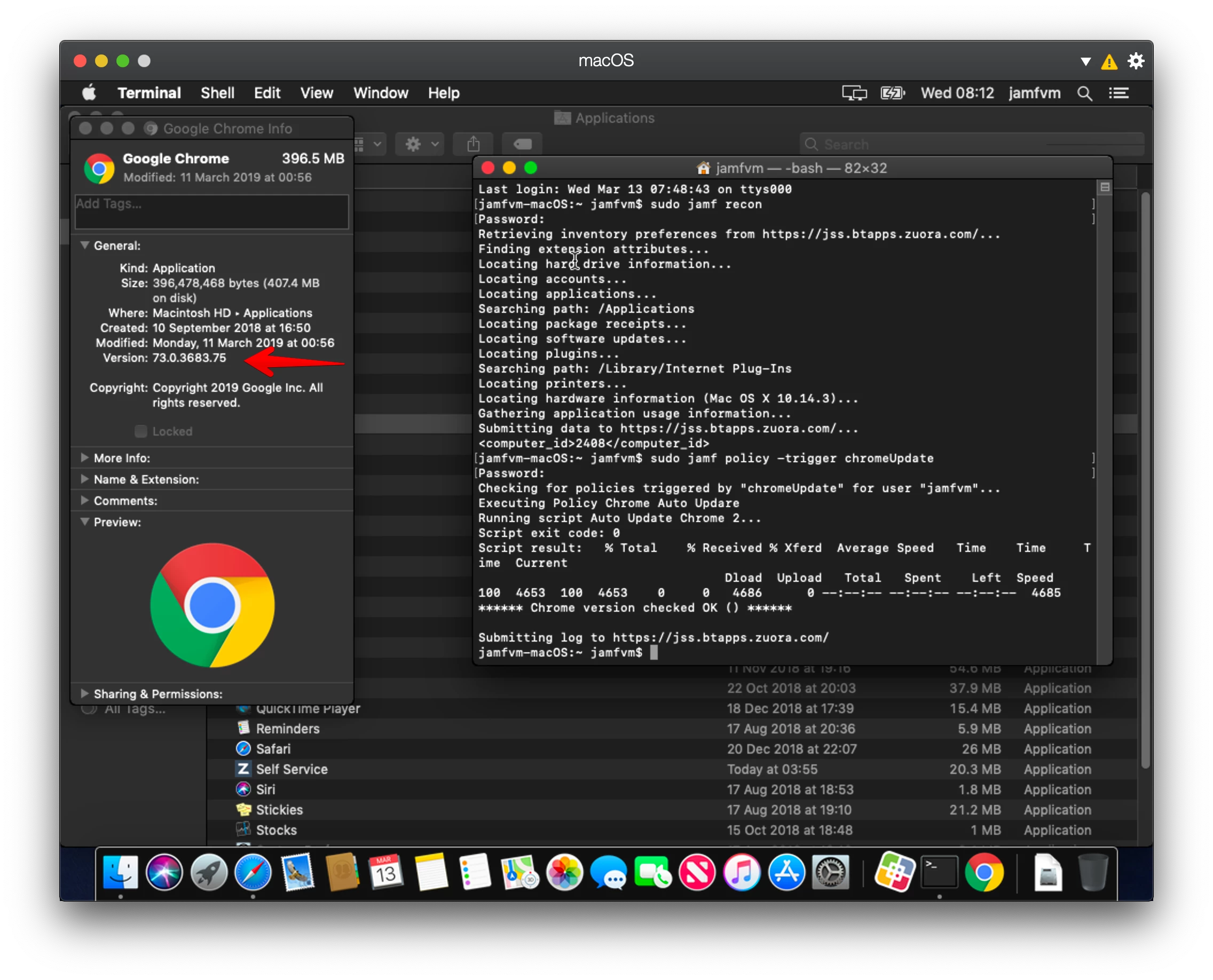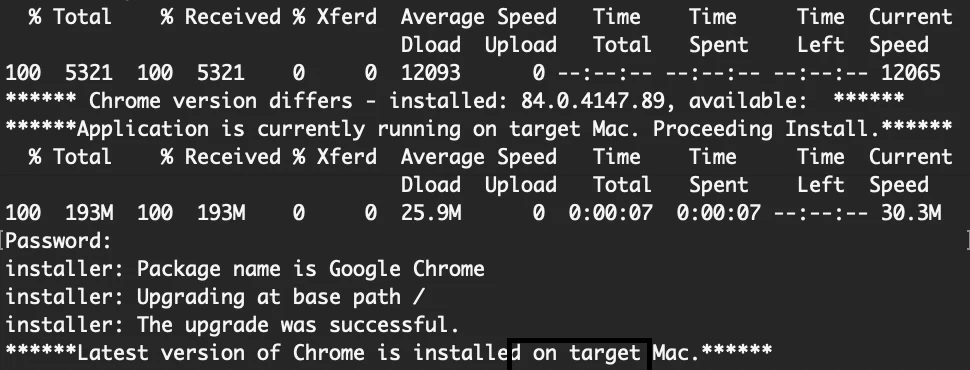Hi There
I know there have been discussions regards this already, however, none of these seems to be working for us. Having looked at this article with Google https://support.google.com/chrome/a/answer/7591084?hl=en it appears that they have changed their code/process as this is no longer working. Also the UpdateDefault key is no longer listed on chromium.org/administrators/policy-list-3.
My question is, how to force users to have the most up to date version of Chrome? I see Patch Management may work, but this requires pkgs and i am worried it would remove user profiles etc if reinstalled etc.
Any advise best way to force users to update chrome?
Thanks












